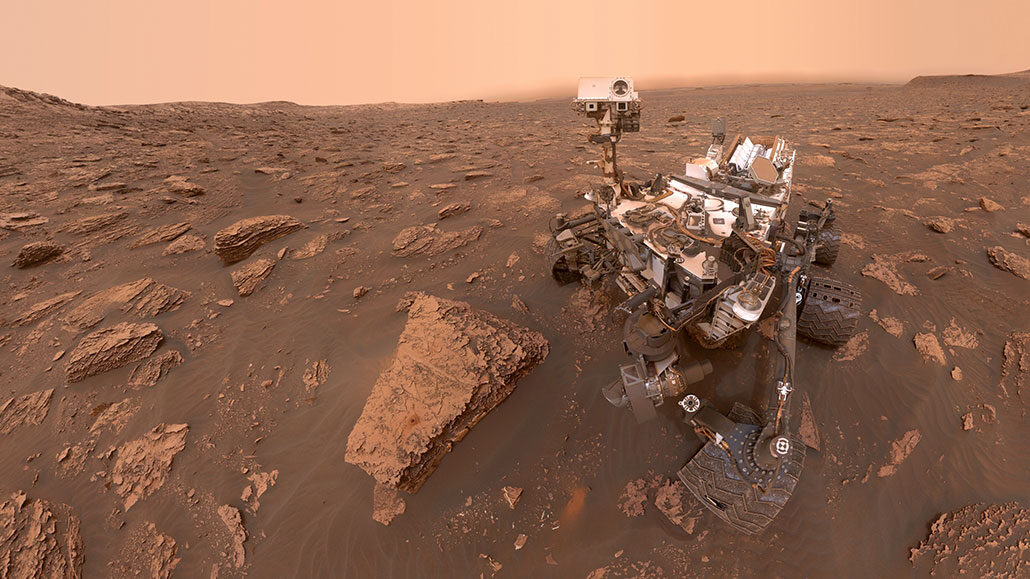atmosphere: The envelope of gases surrounding Earth or another planet.
droid: A fictional robot with artificial intelligence. The term was coined for use in the Star Wars universe, and is short for android.
geologic: An adjective that refers to things that are related to Earth’s physical structure and substance, its history and the processes that act on it. People who work in this field are known as geologists.
Jupiter: (in astronomy) The solar system’s largest planet, it has the shortest day length (10 hours). A gas giant, its low density indicates that this planet is composed of light elements, such as hydrogen and helium. This planet also releases more heat than it receives from the sun as gravity compresses its mass (and slowly shrinks the planet).
lander: A special, small vehicle designed to ferry humans or scientific equipment between a spacecraft and the celestial body they will explore.
laser: A device that generates an intense beam of coherent light of a single color. Lasers are used in drilling and cutting, alignment and guidance, in data storage and in surgery.
lunar: Of or relating to Earth’s moon.
Mars: The fourth planet from the sun, just one planet out from Earth. Like Earth, it has seasons and moisture. But its diameter is only about half as big as Earth’s.
moon: The natural satellite of any planet.
orbit: The curved path of a celestial object or spacecraft around a galaxy, star, planet or moon. One complete circuit around a celestial body.
oxygen: A gas that makes up about 21 percent of Earth's atmosphere. All animals and many microorganisms need oxygen to fuel their growth (and metabolism).
peer: (noun) Someone who is an equal, based on age, education, status, training or some other features. (verb) To look into something, searching for details.
planet: A large celestial object that orbits a star but unlike a star does not generate any visible light.
Pluto: A dwarf planet that is located in the Kuiper Belt, just beyond Neptune. Pluto is the tenth largest object orbiting the sun.
propulsion: The act or process of driving something forward, using a force. For instance, jet engines are one source of propulsion used for keeping airplanes aloft.
Red Planet: A nickname for Mars.
robot: A machine that can sense its environment, process information and respond with specific actions. Some robots can act without any human input, while others are guided by a human.
star: The basic building block from which galaxies are made. Stars develop when gravity compacts clouds of gas. When they become hot enough, stars will emit light and sometimes other forms of electromagnetic radiation. The sun is our closest star.
titan: The term for any gigantic being. The term comes from Greek mythology. The six sons and six daughters of the Greek gods Uranus and Gaea were known as titans. Capitalized Titan is a moon of Saturn.
universe: The entire cosmos: All things that exist throughout space and time. It has been expanding since its formation during an event known as the Big Bang, some 13.8 billion years ago (give or take a few hundred million years).

